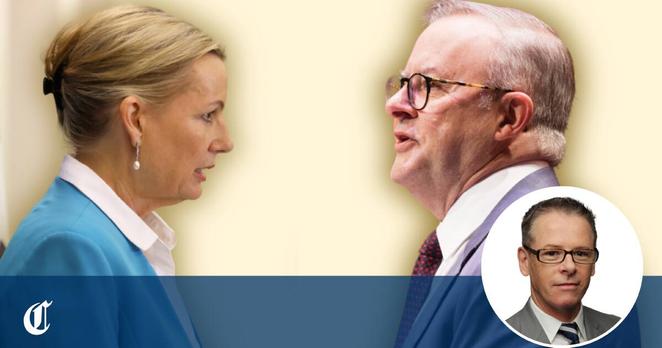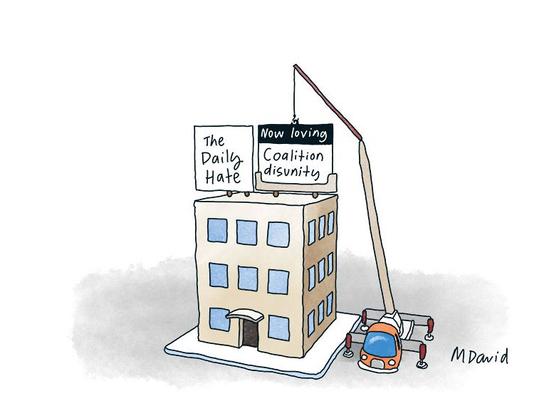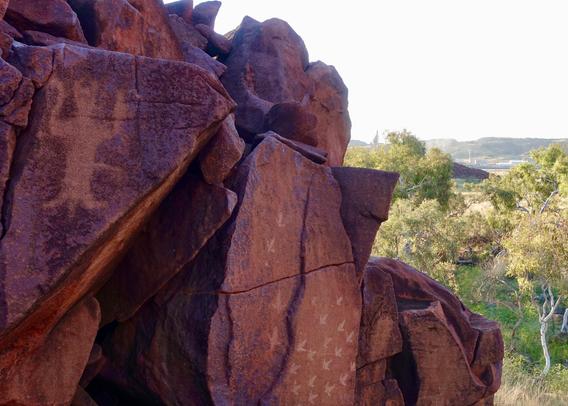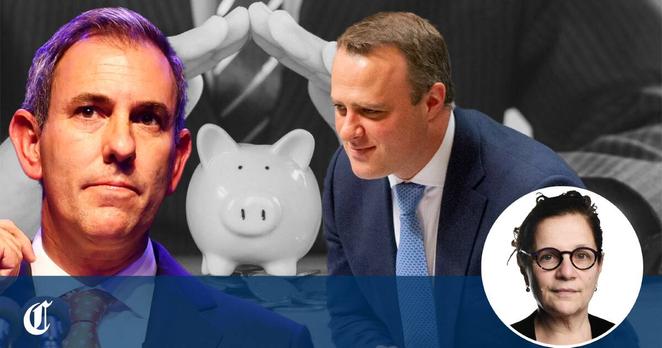Mark has given us a fabulous phrase herein that i expect will not be eclipsed for the rest of today at least...
in a fit of pique-stupidity
QUOTE
"We shall not cease from exploration, and the end of all our exploring will be to arrive where we started and know the place for the first time," wrote. T.S. Eliot in his famous 1943 poem.
Ideally, now that the election is done and the various candidates have processed the verdict, we have a renewed clarity about who we are and where we are going.
But has the nation embarked on a new direction of "progressive patriotism" as the prime minister has branded it, or just stuck to the old one? Are we "moving forward", as Julia Gillard once entreated, or muddling through?
On one level, the answer seems obvious. Australian voters opted for the status quo, for retaining the prime minister they already had. In its banality, this invokes Malcolm Turnbull's oxymoronic request from 2016, "continuity and change" - an empty phrase adapted from the satirical HBO political drama, Veep.
"Continuity and change" was designed to "handle" the electoral overhang of Turnbull's mid-term raid on Tony Abbott's premiership. A switch in which voters had been mere spectators.
To adjust Eliot, ever-so-slightly, We shall not cease from exhortation, and the end of all our imploring, will be to arrive where we started...
Yet it was arguably Turnbull's timorous performance as prime minister - when compared with his personal convictions on the republic, climate and marriage equality - that did him most harm. Voters struggled with the point of it all.
While Gillard had carried the opprobrium for unexplainedly replacing the still popular Kevin Rudd, Turnbull's removal of Abbott seemed more like a relief following the 2014-15 budget, "chopper-gate", the knighting of Prince Philip, and endless manoeuvring against same-sex marriage.
Turnbull entered the 2016 poll with a thumping majority (90 seats to Labor's 55) and yet emerged with a single-seat margin. His fate in the party room was sealed at that moment.
Albanese, by contrast, achieved a narrow two-seat majority of 77 seats in 2022 but turned that into 94 seats in 2025.
The emphatic nature of that outcome has brought recalibrations and recriminations in the losing parties and more than a little wackiness.
Hubris is usually confined to the winners, but the Nationals managed to source plenty in the Coalition's worst-ever defeat.
Overplaying their hand, they collapsed inwardly within days of the election, withdrawing from the Coalition in a fit of pique-stupidity only to slink back into the partnership last week claiming it had all been part of the plan.
New Liberal Leader Sussan Ley had largely held her ground, conceding that the Coalition would support the removal of any legal moratorium against nuclear generation. That was a long way from David Littleproud's unbreakable "principle" that the policy taken to the election (for seven state-owned nuclear power plants) must be retained.
Yet Ley's future tests remain epic in both number and scale. Littleproud's cartoonish frontal challenge to her authority was well-handled but she would be foolish to assume her own party does not share many of the Nats' reactionary views on climate change, reconciliation, and sundry culture war pre-occupations.
She wants to steer the party towards the centre-ground of Australian politics, but how much room does she really have? And how long?
The selection of a woman as Liberal leader was both a breakthrough moment for the Liberals and the bare minimum the party could do to heed the message from contemporary Australia on May 3. That "bare minimum" however, might be all the authority she is extended.
Naming a frontbench containing fewer women than even Peter Dutton had was not a promising beginning. Compared to policy battles, personnel is the easy bit.
As things stand, she risks being dragged into a new-old debate about net-zero by 2050. Think of this as a set of Matryoshka Russian dolls. If nuclear was the bigger doll, obscuring right-wing contempt for net-zero, the net-zero doll hides the real core of this, a conservative disbelief in climate science.
For Ley's project of "meeting Australians where they are", this is problematic. Get this wrong and it is not just 2028 that remains unwinnable, but all elections beyond.
Meanwhile on the Labor side, a dangerous space has opened up between rhetoric and policy.
Described by Carmen Lawrence, a former WA premier and federal minister, as "the most polluting fossil fuel project approved anywhere in Australia in a decade", Labor's intergenerational commitment the ongoing operation of Woodside's North West Shelf gas project until 2070 is astonishing.
Dr Lawrence warns it will "unleash more than 4 billion tonnes of climate pollution, equivalent to a decade of Australia's current emissions".
Labor's commitment to net-zero has fallen even before the 48th Parliament convenes. Or to butcher Eliot one last time,
We shall not cease from exaggeration and the end of all our explaining will be to arrive where we started...
Voters might again be struggling with the point of it all.
*Through the unknown, remembered gate
When the last of earth left to discover
Is that which was the beginning;
At the source of the longest river
The voice of the hidden waterfall
And the children in the apple-tree
Not known, because not looked for
But heard, half-heard, in the stillness
Between two waves of the sea.*
UNQUOTE
#AusPol #HahahahaLiebs #WhyIsLabor #NatsAreNuts #ClimateCrisis #WeAreTotallyFscked #GreensYeah










